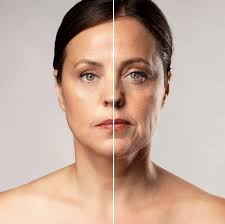
25 Nov How Dermatology Addresses Various Skin Conditions
Dermatology is a medical field that focuses on the health of the skin, hair, and nails. Skin conditions range from acne, eczema, and psoriasis to more serious concerns such as skin cancer, rosacea, and fungal infections. Dermatologists effectively address these conditions, helping to improve overall quality of life. Here is more information on dermatological care and the treatment options for various skin issues:
What Is Dermatology?
Dermatology is the branch of medicine that deals with the skin and includes conditions of the hair and nails. Dermatologists are qualified to identify health issues that manifest on the skin’s surface, and they perform various medical and cosmetic procedures. Their work involves a detailed understanding of the skin’s structure and function. They provide care for patients of all ages, addressing both acute and chronic conditions.
What Are the Available Services?
Dermatological services cover a broad spectrum of medical, surgical, and cosmetic procedures. Medical services involve diagnosing and treating conditions such as acne, eczema, and psoriasis. Dermatologists prescribe medications and recommend therapies to manage these issues, and they also conduct skin cancer screenings.
Surgical dermatology includes procedures to remove skin cancers, moles, cysts, and warts, and dermatologists perform biopsies to diagnose skin conditions. Cosmetic dermatology offers treatments to improve the appearance of the skin. These services include chemical peels, laser therapy, and injectable fillers, all of which address signs of aging.
What Are Skin Conditions?
Skin conditions are disorders or diseases that affect the skin, and they vary widely in symptoms and severity. Common conditions include acne, which involves clogged pores, and dermatitis, which is a general term for skin inflammation. Other examples include psoriasis, an autoimmune disease that causes rapid skin cell growth, and rosacea, which causes redness and visible blood vessels on the face.
These conditions are either temporary or chronic, and they may be painless or cause significant discomfort. Some, like skin cancer, require immediate medical attention, while others are primarily cosmetic concerns. Understanding the specific type of condition is the first step toward effective management.
What Causes Them?
The causes of skin conditions are diverse and often multifactorial. Genetic predisposition plays a role in many conditions, including eczema and psoriasis. Environmental factors, such as exposure to sunlight, allergens, and irritants, can also trigger or worsen skin issues, and some conditions are caused by bacteria or fungi.
Lifestyle factors, like diet, can influence skin health, and hormonal changes often contribute to conditions like acne. A skin condition is sometimes a symptom of an underlying systemic disease. Identifying the specific causes is part of the diagnostic process and helps form an effective treatment strategy.
How Does Dermatology Address Them?
Dermatology addresses skin conditions through a methodical approach that begins with an accurate diagnosis. A dermatologist will examine the skin and perform tests, such as a skin biopsy or culture, to identify the issue. Once a diagnosis is made, a treatment plan is developed, and this plan is tailored to the individual patient’s condition and health status. Dermatologists also provide patient education on skin care and lifestyle adjustments to help manage conditions and prevent recurrences, and they monitor progress over time.
Visit a Dermatologist Today
Dermatology provides specialized care for a wide array of conditions affecting the skin, hair, and nails. From diagnosing common rashes to treating complex diseases, dermatologists offer a range of services to maintain skin health. Understanding the causes and available treatments can help you make informed decisions about your care. If you have questions about your skin, consult a dermatologist for a professional evaluation and a personalized treatment plan.

No Comments